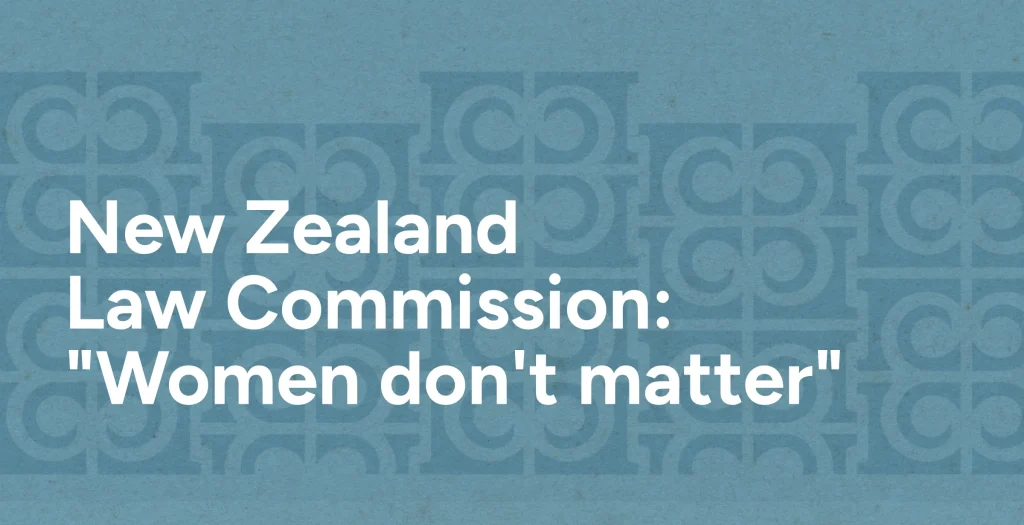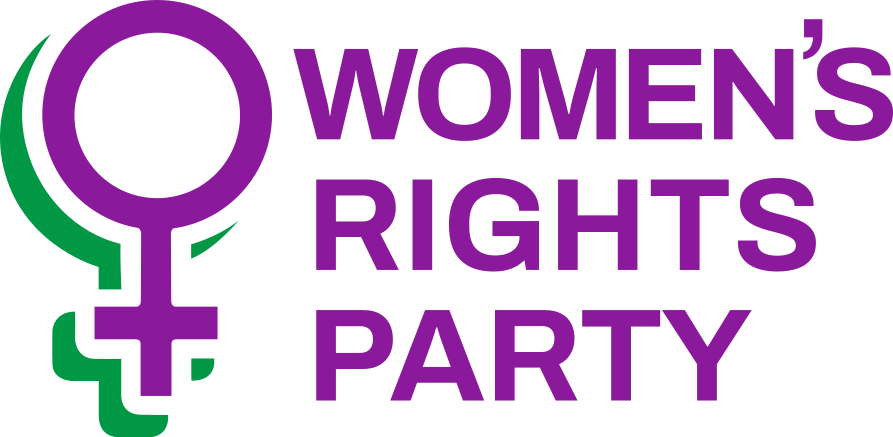“It couldn’t be worse,” the Women’s Rights Party says on the release today of the New Zealand Law Commission Report ‘Ia Tangata’ recommending to the Government that “gender identity or its equivalents in the cultures of the person” (which the report suggests should be defined to include gender expression); and “having an innate variation of sex characteristics” be included as prohibited grounds against discrimination in the Human Rights Act 1993.

Ms Ovens says the Law Commission Report doesn’t stop there. “The Commission is recommending changes to most of the 19 existing exceptions in the Human Rights Act that currently allow people to be treated differently based on their sex, such as sports, changing facilities and toilets, or shared accommodation. See table from the Report below.
The Law Commission’s recommendations include amending some of the exceptions to clarify that the provisions do not allow people to be excluded from spaces that match their ‘gender identity’. This would include toilets and changing facilities, women’s refuges and rape crisis centres, and women’s prisons.
In addition, the Law Commission is recommending that some exceptions be amended to clarify that they allow for differences of treatment based on a person’s gender identity or their sex characteristics. The Commission is suggesting new legal tests that should be met before this happens, e.g. holding a course or counselling on highly personal matters, such as sexual abuse and violence.
The Law Commission also made some suggestions about how to make some language in the Human Rights Act ‘gender neutral’. The Women’s Rights Party is concerned this will reinforce the erasure of the word ‘women’ from women’s health services such as maternity services.
“When it comes to women’s rights, sex matters,” Ms Ovens says. That is because, in addition to ‘sex’ being a prohibited ground in terms of discrimination in the Human Rights Act 1993, the exceptions in the Act that allow positive discrimination to protect women and girls on the basis of sex were included in the Human Rights Act for good reason – to protect women’s and girls’ privacy and dignity and that of their clients, and in some cases such as women’s sports, for safety and fairness. The sex-based exceptions also provide for men and boys (e.g. men-only hostels).
When the Human Rights Act was drawn up in 1993 to comply with the Convention for the Elimination of Discrimination Against Women (CEDAW), it was understood that ‘sex’ meant women and men.
In fact, as Ms Ovens says: “If ‘sex’ is to be conflated with ‘gender identity’, the sex-based exceptions that currently protect women’s single-sex spaces and women’s sports, among other sex-based rights are meaningless.
“Sexual orientation, referring to same-sex attraction or opposite sex attraction, is also meaningless if it doesn’t refer to biological sex.”
The Australian Labor Government under Julia Gillard removed the definition of ‘sex’ in terms of men and women from the Australian Sex Discrimination Act, and replaced it with ‘gender’. As a result, lesbians in Australia are not allowed to have lesbian-only events or get-togethers, including social media groups. It was on this basis that Roxanne Tickle, a man who identifies as a woman, was able to win his case against Sall Grover’s app for women and girls only, a case that was recently appealed in the Australian Federal Court.
When she is touring New Zealand in late October, ‘Sex Matters’ director and author Helen Joyce will be talking about the UK Supreme Court decision clarifying that “sex” in the UK Equality Act 2010 (the equivalent of our Human Rights Act) means biological sex, male or female, not sex self-ID or paperwork. This ruling should roll into policies that should now be using this definition.
“It seems some UK organisations are having trouble getting their heads around this!” Jill Ovens says.
The Women’s Rights Party is part of a global campaign by women to defend sex-based rights that were put in place to protect women and children.
“Not one section of the community has escaped unscathed from the social engineering project referred to as ‘trans rights activism’,” Ms Ovens says. “Every week I report on our activities to our sister organisation, the Women’s Declaration International, with activists from around the world. The push to run roughshod over women’s sex-based rights is common throughout the Western democracies.”
Just yesterday, Ms Ovens reported on the Law Commission’s report on adding gender identity and expression into the Human Rights Act, which we were expecting to be released any day. In fact, the Law Commission Report has been in the hands of Minister of Justice Paul Goldsmith since 11 August. The Cabinet of the Coalition Government will be deciding whether to act on its recommendations, which would result in a Bill to amend the current Act, and presumably a Select Committee process allowing ‘the people’ to have their say.
“It will be interesting to see how NZ First reacts to the recommendations, given its pre-Election promise to defend women’s spaces and women’s sports,” Jill Ovens says.
